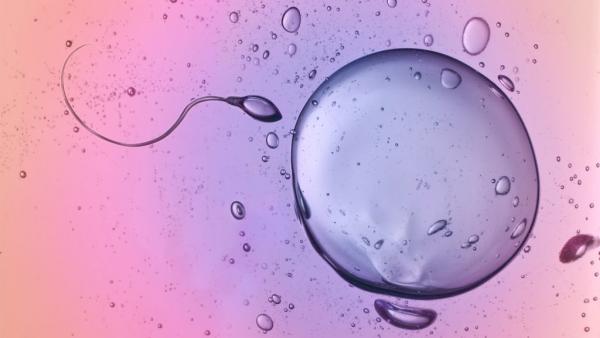
Did you know that 40% of infertility cases are due to male causes? That’s right, 40%! That’s huge. Often when couples face infertility, most of the treatment emphasis is on the female. One significant reason for this focus is a lack of understanding and education about causes of male infertility.
Commonly couples seek out IVF as a last resort when they face infertility, however, some of the time, couples go down this route without competently exhausting all natural options. It’s important to understand that fertility and the ability to conceive depends on the health of an egg and sperm.
Diet and lifestyle effects on sperm health
Fertilisation of an egg certainly depends on ovulation and the health of the female's egg, however it also has a lot to do with sperm quality, sperm morphology, sperm motility and sperm count. These parameters of sperm health are intrinsically related to what a male does with his diet and lifestyle on a day to day basis. Does he eat a whole food, nutrient dense diet? Is he getting enough good quality sleep? What are his stress levels like? Does he exercise enough? What are his habits around drugs, alcohol and smoking? Does he work in an industry where he is exposed to lots of chemicals? These are all important questions to consider in cases of infertility and if there are inconsistencies around these habits, they need to be addressed. Gaining consistency around these habits can really improve the health of sperm, increase sperm count and therefore improve fertility.
5 simple ways to improve sperm health
If you are male and you and your partner are struggling to conceive, or if you are wanting to optimise your fertility and hormonal health, we recommend:
-
Eat a wholefoods diet rich in antioxidants and phytochemicals. Prioritise high quality proteins (including organic chicken, turkey, beef and fish), a variety of brightly coloured fruits and vegetables, nuts/seeds and legumes. Avoid artificial sweeteners, colourings and vegetable oils.
-
Set up a good sleep routine. Aim to go to sleep at the same time, remove or limit blue light exposure before bed, and avoid drinking caffeine after 12pm.
-
Reduce stress by connecting regularly with friends and family, getting outside as much as possible, breathing deeply, and setting boundaries around home and work duties (so that home is still a place of rest)
-
Exercise regularly. Research indicates that men who perform both aerobic and resistance exercise have improved sperm quality and reproductive hormones and had increased chances of their partner falling pregnant. The studies indicate that 45 minutes of exercise 3 times a week was enough to see positive changes.
-
Get adequate sunlight exposure, or supplement with Vitamin D if needed. Research has shown that there is a positive relationship between serum vitamin D levels and sperm motility.
Fertility health is dependent on both females and males diet and lifestyle habits. If you are experiencing infertility, it is worth seeking a qualified practitioner that can help steer you in the right direction in terms of diet and lifestyle habits, and recommend evidence based herbal and nutritional supplementation that can improve fertility outcomes. Not only will this improve your fertility health, but it will improve your overall health and well-being, as well as increase the likelihood of a healthy pregnancy.
This article was written by Alon Blumgart, Melbourne Naturopath at Melbourne Wellness who specialises in male and female hormone disruption. To find out how to support your hormonal health naturally, contact our friendly team on 8528-2079

